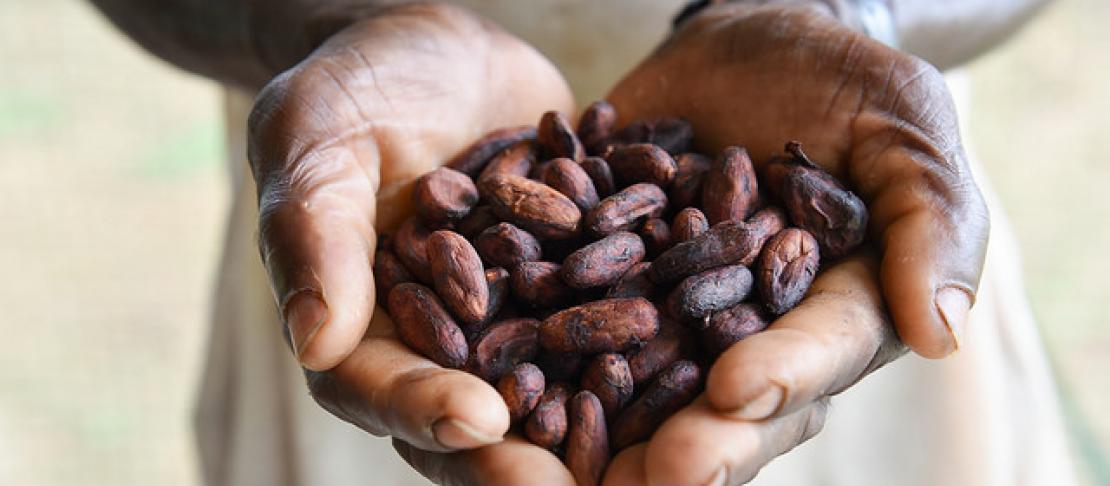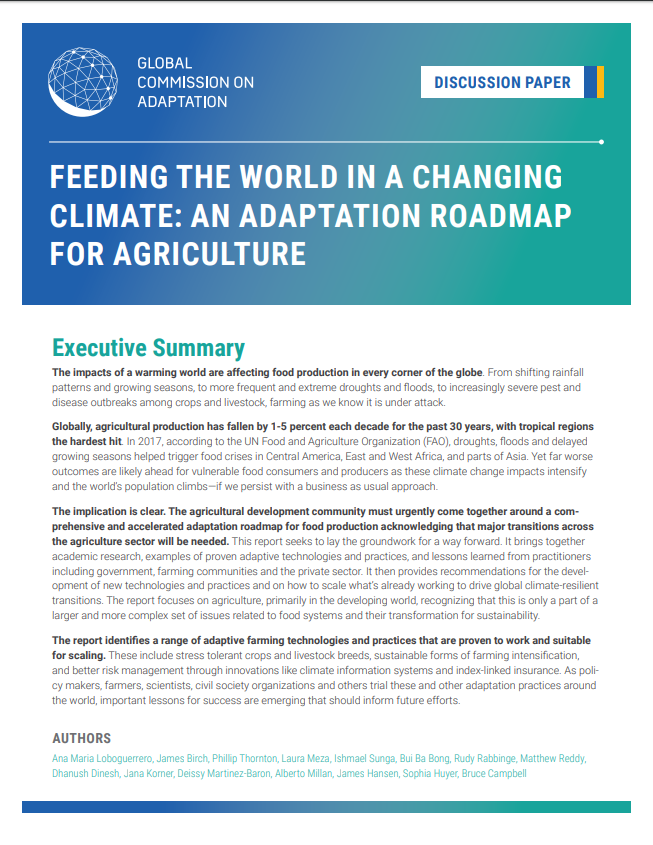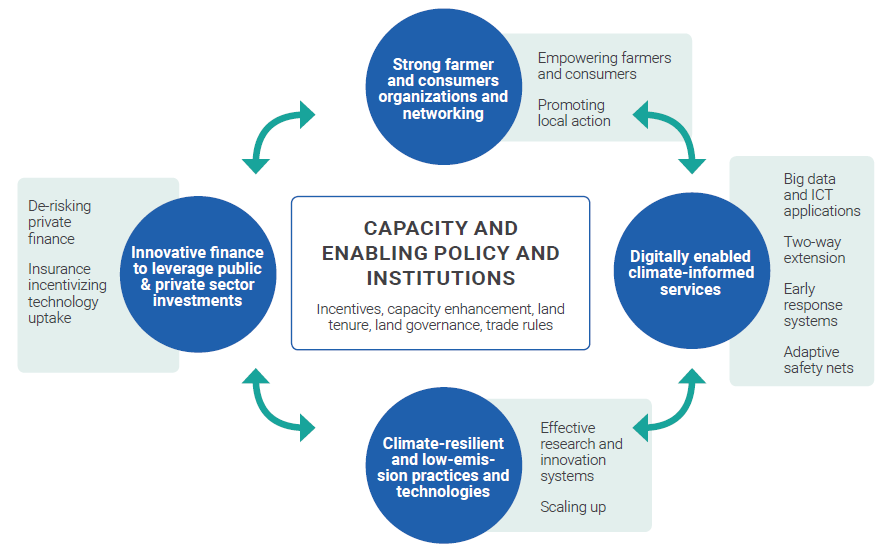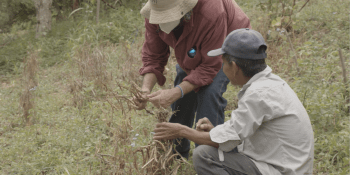Feeding the world in a changing climate: An adaptation roadmap for agriculture

Adaptation in agriculture can no longer be delayed. It is imperative that we act now.
Ahead of the 24th Conference of Parties (CoP) in Katowice, Poland, world leaders including Ban Ki Moon, Bill Gates, Mark Rutte and Kristalina Georgieva came together with heads of states and representatives from more than 10 countries and international experts to launch of the Global Commission on Adaptation. The Commission, managed by the Global Center on Adaptation and World Resources Institute is an important step to bring together governments, the private sector, civil society, intergovernmental bodies, and knowledge institutions to address the obstacles which slow down adaptation action. In its most recent report, out earlier this month, the Intergovernmental Panel on Climate Change (IPCC) has highlighted the impacts and risks associated to climate change in different systems and pointed out that communities dependent on agriculture are disproportionately affected.
An adaptation roadmap for agriculture
In response to the disproportionate risks faced by the over 550 million smallholder farmers who depend on agriculture, urgent and decisive action is needed. CCAFS has prepared a discussion paper for the Global Commission on Adaptation, which puts forward a roadmap which calls for:
- Increased investment in the modernization of agricultural systems in the developing world, especially for smallholder farming systems where yield gaps are large.
- Expanding digital climate information services to make knowledge accessible to farmers to scale the uptake of proven and effective resilience-building tools and techniques.
- Using public finance to de-risk and incentivize private sector led climate action in agricultural value chains.
- Supporting collective action at scale, building the capacity of farmers and other local organizations, as well as empowering rural women and youth.
- Stepping up country led policies which create a conducive environment for action.
Speaking about the paper, Dr Ana Maria Loboguerrero Rodriquez, Head of Global Policy Research at CCAFS and lead author noted, “Changes are inevitable, but transformation is a conscious choice. Global food systems are at a key point, where we now need to make the crucial choice to transform these systems so that they can respond to the climate challenges. Without transformation, the food security of future generations is at risk.”
Five building blocks to climate change resilient agriculture.
Not without hope
It is not all doom and gloom, and inspiring examples of adaptation actions are emerging, led by farmers, communities, governments and businesses. The paper highlights several such actions, including scenario guided climate-resilient policy development, use of big data for decision making by producer groups, use of reality TV to disseminate technical advice, and adoption of practices such as Alternate Wetting and Drying in rice, Coffee Banana Intercropping , and Stress Tolerant Varieties. However, it is crucial that such examples are scaled out to realize the adaptation action needed within the sector.
Read the report: Feeding the world in a changing climate: an adaptation roadmap for agriculture
Dhanush Dinesh is the Global Policy Engagement Manager for CCAFS.





